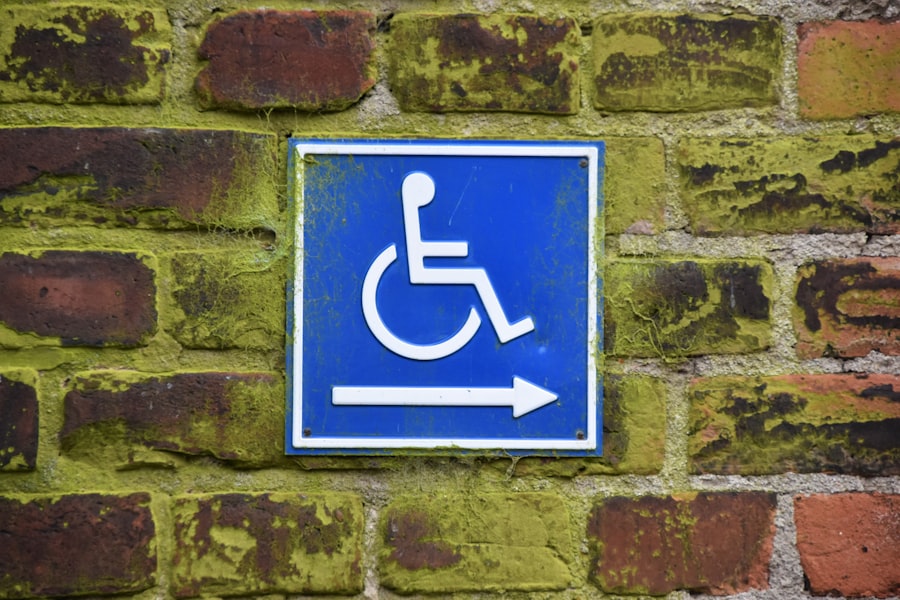Depersonalization Derealization Disorder (DPDR) is a complex mental health condition that can leave you feeling detached from your own thoughts, feelings, and sense of self. It often manifests as a persistent or recurrent feeling of being an outside observer of your own life, as if you are watching yourself from a distance. This sensation can be disorienting and frightening, leading to a profound sense of alienation.
You may find yourself questioning the reality of your surroundings, feeling as though the world around you is unreal or dreamlike. This disorder can occur in isolation or as part of other mental health conditions, such as anxiety or depression. The experience of depersonalization and derealization can be triggered by various factors, including trauma, stress, or substance use.
For many, it can feel like a coping mechanism in response to overwhelming situations. However, while it may serve as a temporary escape, it can also become a debilitating condition that interferes with your ability to engage fully with life. Understanding DPDR is crucial for recognizing its impact on your mental health and seeking appropriate support and treatment.
Key Takeaways
- Depersonalization Derealization Disorder (DDD) is a mental health condition characterized by feeling detached from oneself and the world around them.
- Symptoms of DDD can include feeling like an outside observer of one’s thoughts and actions, emotional numbness, and a distorted perception of time and space.
- DDD is not widely recognized as a disability by legal systems, which can lead to challenges in obtaining accommodations and support.
- Individuals with DDD may face difficulties in maintaining relationships, holding down a job, and engaging in daily activities due to their symptoms.
- Support and accommodations for individuals with DDD can include therapy, medication, and workplace adjustments to help manage their symptoms and improve their quality of life.
Symptoms and Impact on Daily Functioning
The symptoms of Depersonalization Derealization Disorder can vary widely from person to person, but they often include feelings of detachment from oneself, emotional numbness, and a distorted perception of reality.
This disconnection can lead to difficulties in maintaining relationships, performing daily tasks, and engaging in work or social activities.
The emotional toll can be significant, leaving you feeling isolated and misunderstood. In daily life, the impact of DPDR can be profound. You may struggle to concentrate at work or school, find it challenging to connect with friends and family, or feel overwhelmed by routine activities.
The constant battle with feelings of unreality can lead to increased anxiety and depression, creating a vicious cycle that further exacerbates your symptoms. As you navigate through life with this disorder, it’s essential to recognize how these symptoms affect your overall well-being and to seek help when needed.
Legal Recognition of Depersonalization Derealization Disorder as a Disability

The legal recognition of Depersonalization Derealization Disorder as a disability is an important aspect of advocating for the rights of individuals affected by this condition. While mental health disorders have gained more visibility in recent years, DPDR remains less understood and often overlooked in discussions about disability rights. In many jurisdictions, the criteria for what constitutes a disability can be vague, leaving individuals with DPDR struggling to access necessary accommodations and support.
To be recognized legally as a disability, DPDR must significantly impair your ability to perform major life activities. This includes work, social interactions, and self-care. However, the subjective nature of the disorder can make it difficult to prove its impact in legal contexts.
Advocacy efforts are crucial in raising awareness about DPDR and pushing for its inclusion in disability legislation. By highlighting the challenges faced by individuals with this disorder, you can contribute to a broader understanding of mental health issues and the need for comprehensive support systems.
Challenges Faced by Individuals with Depersonalization Derealization Disorder
| Challenges Faced by Individuals with Depersonalization Derealization Disorder |
|---|
| 1. Feelings of detachment from oneself |
| 2. Persistent feelings of being in a dream-like state |
| 3. Difficulty in connecting with others emotionally |
| 4. Impaired sense of reality |
| 5. Struggle with concentration and memory |
| 6. Anxiety and depression |
| 7. Impact on daily functioning and quality of life |
Living with Depersonalization Derealization Disorder presents numerous challenges that can affect various aspects of your life. One significant hurdle is the stigma associated with mental health disorders. Many people may not understand what DPDR is or may dismiss it as mere anxiety or stress.
This lack of understanding can lead to feelings of isolation and frustration as you try to explain your experiences to others who may not grasp the severity of your condition. Additionally, the fluctuating nature of DPDR symptoms can make it difficult for you to maintain stability in your daily life. Some days may feel more manageable than others, while on particularly challenging days, you might struggle to engage with even the simplest tasks.
This unpredictability can lead to anxiety about when symptoms will flare up again, creating a cycle of fear that further exacerbates your condition. Navigating relationships and work environments becomes increasingly complex when you are constantly battling feelings of detachment and unreality.
Support and Accommodations for Individuals with Depersonalization Derealization Disorder
Finding support and accommodations is essential for managing the challenges posed by Depersonalization Derealization Disorder. One effective approach is seeking therapy from mental health professionals who specialize in dissociative disorders. Cognitive-behavioral therapy (CBT) and mindfulness techniques can help you develop coping strategies to manage symptoms and reduce feelings of detachment.
Support groups can also provide a sense of community where you can share experiences and learn from others facing similar challenges. In workplace settings, accommodations may include flexible work hours, the option to work remotely, or adjustments to workload expectations during particularly difficult periods.
By advocating for yourself and seeking necessary accommodations, you can create a more manageable work-life balance that allows you to thrive despite the challenges posed by DPDR.
Advocacy for Disability Rights for Individuals with Depersonalization Derealization Disorder

Advocacy plays a crucial role in ensuring that individuals with Depersonalization Derealization Disorder receive the recognition and support they deserve. By raising awareness about this often-misunderstood condition, you can help dismantle stigma and promote understanding within society. Engaging in conversations about mental health and sharing personal experiences can foster empathy and encourage others to seek help when needed.
Joining advocacy groups focused on mental health rights can amplify your voice and connect you with others who share similar goals. These organizations often work towards policy changes that promote better access to mental health resources and protections for individuals with disabilities. By participating in advocacy efforts, you contribute to a larger movement aimed at improving the lives of those affected by DPDR and other mental health conditions.
Coping Strategies for Managing Depersonalization Derealization Disorder in the Workplace
Managing Depersonalization Derealization Disorder in the workplace requires a combination of self-awareness and practical coping strategies. One effective approach is establishing a routine that incorporates regular breaks throughout your workday. These breaks allow you to step away from tasks that may trigger feelings of detachment and provide an opportunity to ground yourself in the present moment.
Techniques such as deep breathing exercises or mindfulness practices can help center your thoughts and reduce anxiety. Additionally, creating a supportive work environment is essential for managing symptoms effectively. Communicating openly with colleagues about your needs can foster understanding and create a culture of support within your workplace.
You might also consider utilizing tools such as journaling or digital apps designed for mental health management to track your symptoms and identify patterns that may help you anticipate challenging days.
Resources and Organizations for Individuals with Depersonalization Derealization Disorder
Accessing resources and organizations dedicated to supporting individuals with Depersonalization Derealization Disorder can be invaluable in your journey toward understanding and managing this condition. Numerous mental health organizations offer educational materials, support groups, and helplines specifically tailored for those experiencing dissociative disorders. Websites such as the International Society for the Study of Trauma and Dissociation (ISSTD) provide comprehensive information on DPDR, including treatment options and research updates.
Local mental health clinics may also offer specialized programs for individuals dealing with dissociative disorders. Connecting with therapists who have experience treating DPDR can provide you with personalized strategies for coping with symptoms effectively. Additionally, online forums and social media groups dedicated to mental health discussions can create a sense of community where you can share experiences and find support from others who understand what you’re going through.
In conclusion, navigating life with Depersonalization Derealization Disorder presents unique challenges that require understanding, support, and advocacy. By recognizing the symptoms and impact of this disorder on daily functioning, seeking appropriate accommodations, and engaging in coping strategies, you can work towards managing your experiences more effectively. Through collective advocacy efforts, we can strive for greater recognition of DPDR as a legitimate disability while fostering an environment where individuals feel empowered to seek help and support without stigma or fear.
Depersonalization-derealization disorder (DDD) is a complex mental health condition that can significantly impact an individual’s daily functioning, often raising questions about whether it qualifies as a disability. This disorder is characterized by persistent feelings of detachment from one’s body or surroundings, leading to distress and impairment in social, occupational, or other important areas of functioning. For those seeking more information on the nuances of DDD and its implications, an insightful article can be found on the Unplugged Psychology website. This resource delves into various aspects of mental health disorders, including DDD, and can be accessed through this link.
LEARN MORE About Depersonalization & Derealization
FAQs
What is Depersonalization Derealization Disorder (DDD)?
Depersonalization Derealization Disorder (DDD) is a mental health condition characterized by feeling detached from oneself (depersonalization) and feeling detached from the world around them (derealization).
Is Depersonalization Derealization Disorder (DDD) considered a disability?
Depersonalization Derealization Disorder (DDD) can be considered a disability if it significantly impairs a person’s ability to function in daily life, work, or social situations. However, the classification of DDD as a disability may vary depending on individual circumstances and the severity of the symptoms.
Can people with Depersonalization Derealization Disorder (DDD) qualify for disability benefits?
People with Depersonalization Derealization Disorder (DDD) may qualify for disability benefits if their symptoms significantly impact their ability to work and perform daily activities. However, eligibility for disability benefits is determined on a case-by-case basis and may require medical documentation and evaluation.
What accommodations can be made for individuals with Depersonalization Derealization Disorder (DDD) in the workplace?
Accommodations for individuals with Depersonalization Derealization Disorder (DDD) in the workplace may include flexible work hours, reduced workload, a quiet and calm work environment, and access to mental health support services. Employers are encouraged to work with employees to provide reasonable accommodations that support their ability to perform their job duties.
Is there treatment available for Depersonalization Derealization Disorder (DDD)?
Treatment for Depersonalization Derealization Disorder (DDD) may include therapy, medication, and self-care strategies. Cognitive-behavioral therapy (CBT) and medication such as antidepressants or anti-anxiety medications may be used to manage symptoms. It is important for individuals with DDD to seek professional help and develop a comprehensive treatment plan.




